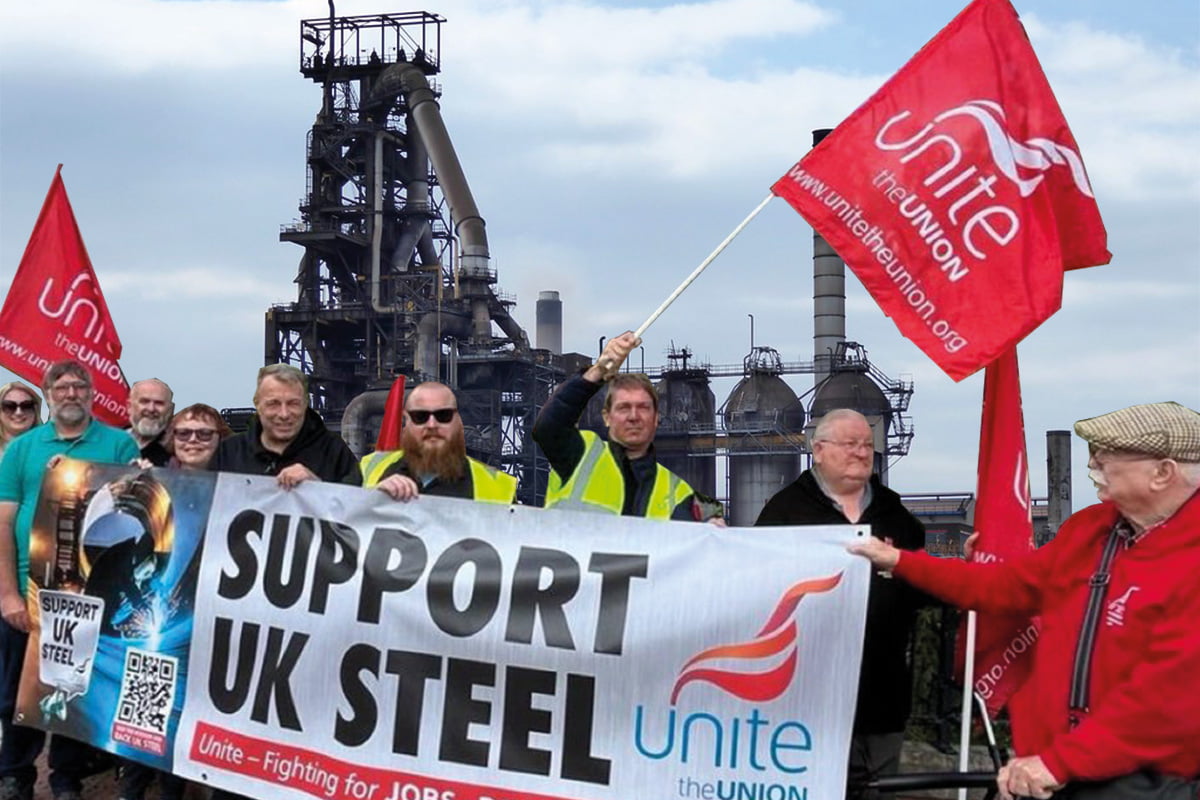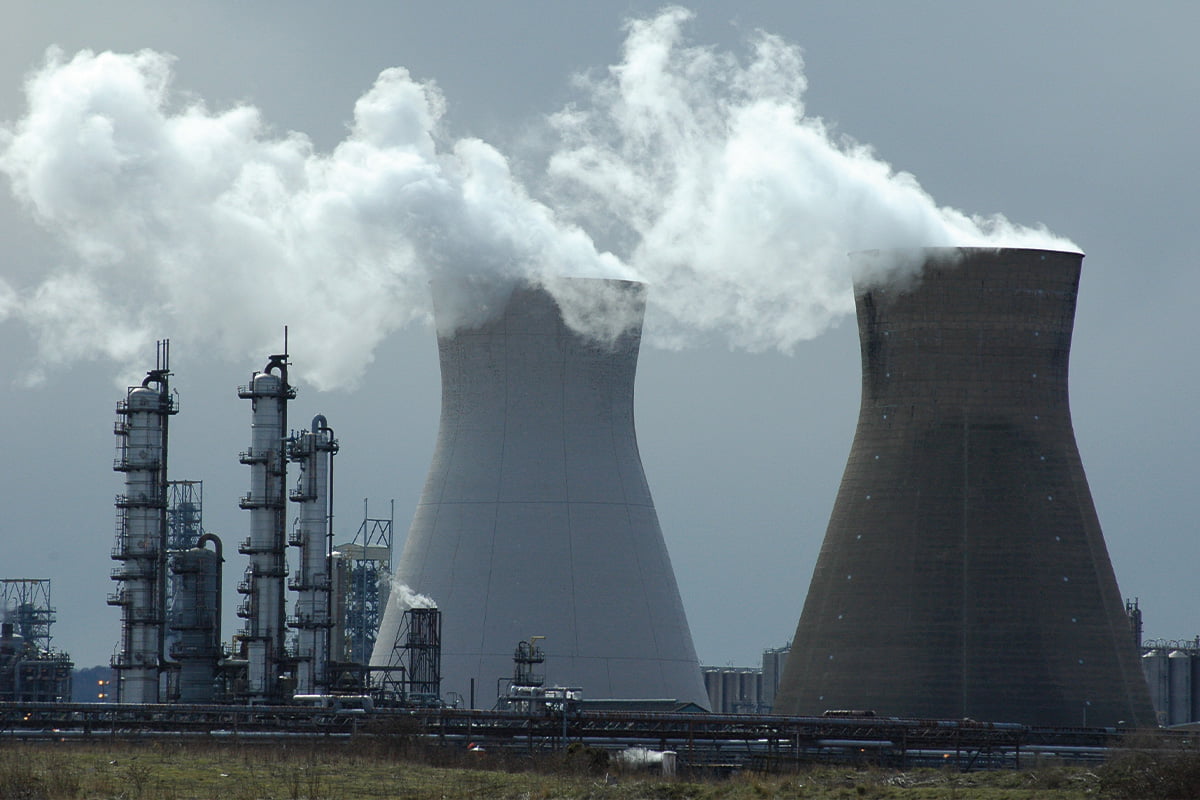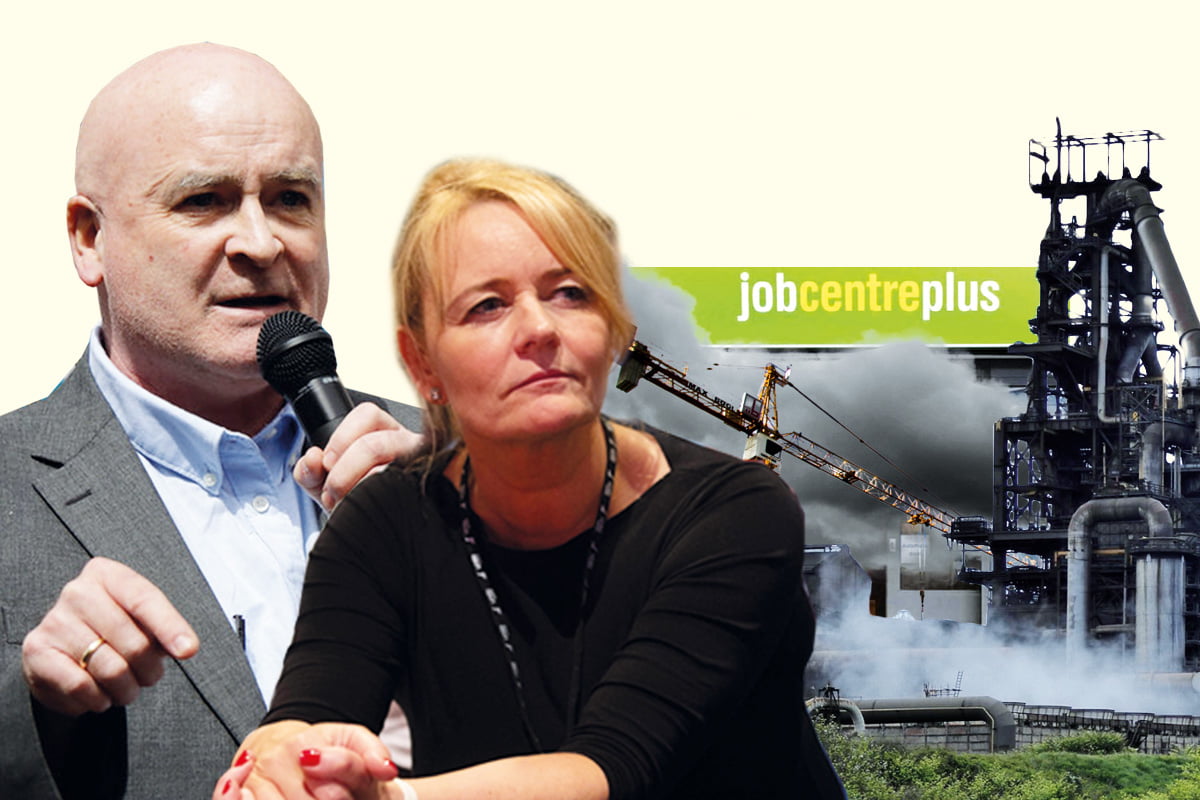Over the past decade or so, the already-weakened state of British industry and infrastructure has declined even further.
Major closures and accompanying job losses are taking place in every sector: from steel and transport to car-manufacturing. Infrastructure – such as rails, roads, water supplies, and the National Grid – is being left to rot.
In each case, the costs to modernise and remain competitive are more than the capitalists are willing to pay.
Whenever a new important project is announced, meanwhile, either costs and delays inevitably spiral, as contractors and outsourcers grab a healthy slice, or the whole thing fails to get off the ground altogether.
The job of the trade union leaders in these circumstances is precisely to organise workers against such attacks by the employers. Yet they have been found wanting – twiddling their thumbs and dragging their feet; fiddling while members’ livelihoods burn.
All the while, the closures and job cuts keep coming. And the pressure heaped upon workers is mounting.
Crumbling mess
Take the example of Alstom, a leading train manufacturer based in Derbyshire. At the start of April, the company’s owners declared that they would potentially be slashing almost 3,000 jobs.
This was blamed on a lack of orders, both from the recently-cancelled HS2, but also from train operating companies generally.
A similar situation unfolded back in 2019 in Bridgend, Wales, when Ford Motors decided to close the engine factory located here, bringing an end to forty years of production in the area.

And of course, there is the case of the Port Talbot steelworks. Like Alstom, the job losses here are so large that a shutdown of the blast furnaces would almost certainly spell the end of the town itself.
In one sector after another, the crisis of British capitalism is making itself felt. Decades of underinvestment have reduced the former ‘workshop of the world’ to a crumbling mess.
While these closures are leaving masses of workers adrift, parasitic shareholders are enjoying ever-larger dividends.
‘New Realism’
A serious gap has opened up between the objective situation that workers find themselves facing, and the ability of these reformist leaders to pick up the gauntlet that is being thrown down by the bosses and their political representatives.
For many years, the union leaders have followed the approach of ‘new realism’ – or class collaboration, as it’s properly called.
This has involved them trying to manage the decline, rather than opposing it. At the same time, they justify their passivity with claims that militant action doesn’t work.
At a grassroots level, however, the mood is far sharper.
This explains the swings to the left that have been seen in the trade union movement in recent years, as reflected in the election of Mick Lynch and Sharon Graham at the head of the RMT and Unite, respectively.
Left leaders’ limits
But even these left leaders are beginning to show their limits. The case of the jobs massacre at P&O Ferries highlighted this glaringly.
When, in 2022, these gangsters moved to illegally sack 800 staff from their ferry services, so as to lower their wage costs, the RMT moved to protest. But they chose not to occupy the boats and prevent the entry of the bosses’ hired goons, which could have actually prevented this mass sacking.

The union leaders’ shortcomings are even more evident on the political front, where they’ve been blindsided by Labour’s recent rowbacks on workers’ rights, whilst calling on activists to “grow up” and vote for Starmer.
And of course, Unite’s mealy-mouthed position on Palestine has been brought up by many members, who are angry at their union’s refusal to organise against the Israeli war machine.
Put to the test
As the 2022-23 strike wave demonstrated, workers will be spurred into action by the bosses’ attacks. In the process, those leaders who cannot offer a way forward for workers’ struggles will be swept aside, and replaced by those with greater determination and tenacity.
The next wave of industrial action is already brewing. Crucially, this will not take place under a Tory government, but with an avowedly big business Labour administration in Downing Street.
This will force union leaders to either mount opposition to ‘their’ government as it carries out Tory policies, or to expose themselves. Under these circumstances, workers will learn very quickly.
The task for communists is to reach those in the workplaces and the unions who are already drawing militant conclusions, and to organise these layers around a clear, fighting programme – in order to provide the working class with the bold leadership that it needs and deserves.
Port Talbot: Another union wins strike mandate
Jonny Lees, Swansea RCP
Over a month ago, Unite – one of the three unions organising in the Port Talbot steelworks – announced that they had won their ballot for industrial action.
In that time Tata bosses have also doubled down. They have confirmed that the first furnace will start shutting down in June, breaking off negotiations with the unions in the process.
Now it’s not just Unite who have a strike mandate, however.
On 9 May, Community, the largest union within the steel industry, announced that their ballot had also succeeded.
85% of Community members who voted in this ballot backed industrial action – a clear sign that there is a mood for a proper fightback.
The third union in the plant, GMB, will also imminently be returning its ballot result.
Tata have made their intentions clear. They think that they have it all sewn up. But they can still be proven wrong.
The only thing that will have an effect at this stage is to meet fire with fire. The workers must take the struggle into their own hands.
This should start with a strong bout of unified strike action across the steel unions, and then escalate towards an occupation.
An appeal to the town at large to back such militant and determined action would have an enormous impact, and would send shockwaves across the entire labour movement.
It’s time to show Tata who really keeps these steelworks running!
Labour backtracks on workers’ rights: Get ready to fight!
Nick Oung, RMT Network Rail South London (personal capacity)
Ever since he won the Labour leadership, ‘Sir’ Keir Starmer has fallen over himself to prove his credentials to the establishment. Campaign pledges have been broken. The party has been purged of leftwingers. And working-class voters have been slapped in the face.
Labour’s so-called ‘New Deal for Working People’ is now next on the chopping block.
As part of this package on workers’ rights, Labour promised to ban ‘fire and rehire’, scrap zero-hours contracts, and repeal the 2016 anti-union laws (but not the rest of them!)
And yet despite previous pledge-breaking, this news seems to have come as a terrible shock to Britain’s union leaders.
“Totally unrecognisable”; “betrayal”: so reads the official response by Unite general secretary Sharon Graham to Starmer’s latest U-turn.

To maintain their profits, Broken Britain’s bosses see no option but to attack workers’ rights, pay and conditions. This is why they are pressuring Starmer into reneging on these pledges.
We know from his previous form what ‘Sir’ Kid Starver is really all about. He is a wooden marionette of the establishment and the capitalists.
This shows what life will be like under a Starmer government. Even the smallest promises that he cynically offers to workers will be dropped at the beck-and-call of the bosses.
So what are the unions doing to halt this? At the time of writing, a threat of reduced union funding to the Labour Party is as far as things have gone.
But such threats have been brushed aside by Starmer many times before. After all, if he can’t get money from them to pay the party’s bills, he’ll happily get it from big-business donors!
RMT general secretary Mick Lynch said earlier this year that voters had to “grow up” and vote Labour. But it sounds like it is the trade union leaders who ought to stand up, flex their muscles, and prepare for a fight with an incoming Starmer government and the capitalists they will faithfully serve.
Grangemouth workers under threat
Our industrial correspondent
Workers at Grangemouth refinery have been threatened with the sack after the current owners – a joint venture of Ineos and PetroChina – announced plans to close the plant, converting it instead into an import terminal by 2025.
Founded in 1924, the Grangemouth site is the last remaining oil refinery in Scotland, turning crude oil from the North Sea into fuel and dozens of petrochemical products.
Its closure would mean another heavy blow to the working class and the towns in the Falkirk area that depend on the site. A future in relatively well-paid, steady work will be taken away from young workers.
There have been desperate calls for something to be done to save the factory. But neither the Scottish government nor the Tories are coming up with any answers.
Workers and their families were given a slap in the face in March, when it was revealed that Ineos made record profits of over £100 million, reversing the ‘losses’ Ineos claimed last year to justify the closure plans.
As well as these bumper profits, Ineos has received a cool £500,000 handout from the Scottish government!
The situation at Grangemouth now is a reminder of the previous industrial battles fought by the workers against Ineos and its billionaire owner Jim Ratcliffe. In 2013, he claimed that the site was about to go bust, losing £10 million a month, and ordered the workforce to take cuts to pay, overtime, pensions, etc.

Ratcliffe went on the offensive against the unions, demanding a no-strike agreement be signed and that full-time union convenors get sacked. As usual, Ineos played dirty, feeding the press false information about ‘greedy workers’ with ‘luxury’ pension plans. Eventually, the bosses locked out the workforce after they threatened to go on strike to defend their trade union rights.
The unions, chiefly Unite and its then-general-secretary Len McCluskey, ignored calls from the workers for militant action: for nationalisation, strikes, and occupations, etc. McCluskey complained about the ‘style’ of industrial relations practised by Ineos, but ultimately surrendered without a fight.
It was a devastating betrayal of the Grangemouth workers, setting the stage for the current run-down and mothballed operations that Ineos now threatens to close entirely, once again claiming the plant is not viable. At the same time, without any shame, Ratcliffe is spending £1.5 billion of Ineos’ money to buy up a stake in Manchester United!
Workers at Grangemouth cannot take these attacks lying down. We must demand the unions organise a real fightback.
If they end up dragging their feet, then it will be up to the workers themselves, as they showed in August 2022 in a wildcat strike over pay, to take up the struggle. Ineos and Ratcliffe are vultures, only interested in profits. Only a militant struggle, involving the broadest possible action, can reverse this threat.
At the end of the day, only the nationalisation of Ineos – under workers’ control, and linked to a socialist plan of production – can the industry be saved and serve the interests of society as a whole, as opposed to the billionaire parasites.






